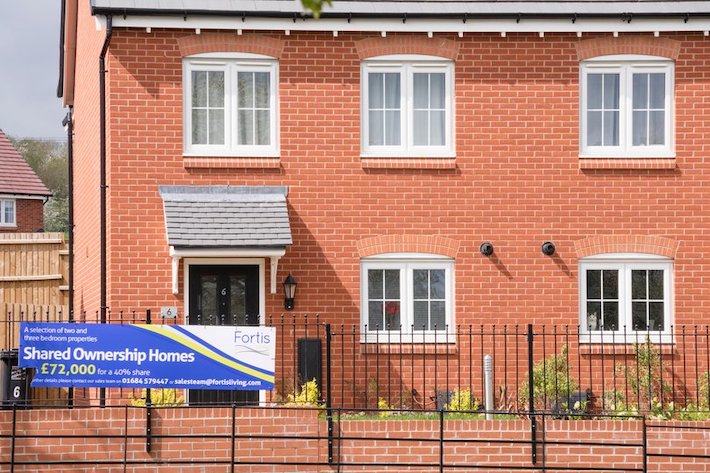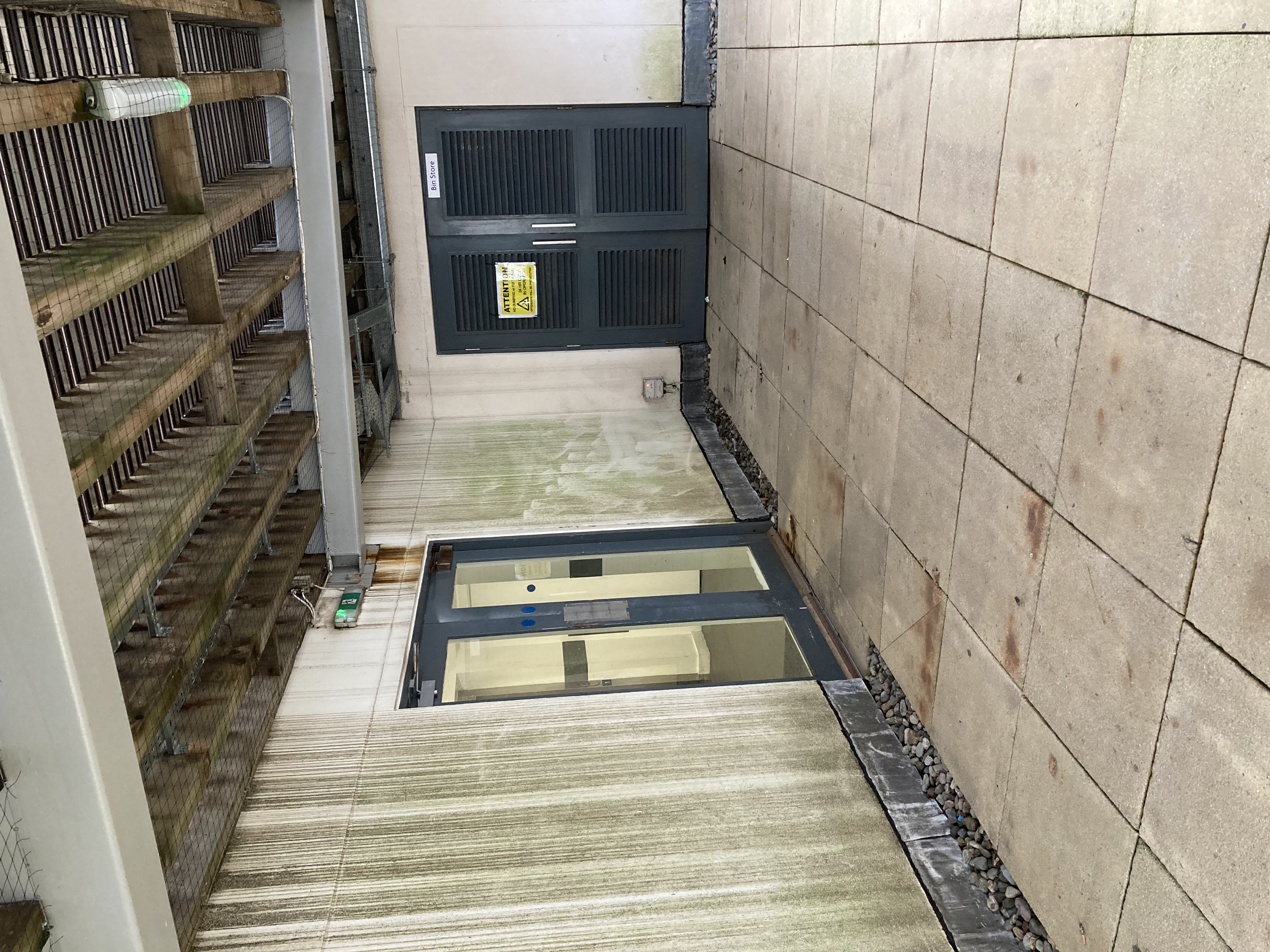Exclusive: Housing associations flog dozens of properties in private auctions
Findings shared with The Lead show as many as 194 housing association properties being put up by auction houses in a single month. The real figures could be much higher.
With the housing crisis deepening every month, housing associations are finding themselves under the spotlight over a series of management failures and decisions that appear to go against their values as providers of secure housing for the poorest families. Now, figures shared exclusively with The Lead offer a glimpse of another questionable practice: housing associations are using auction houses to sell off lucrative properties, shedding homes while millions of people languish on the housing waiting list.
This “asset management” technique - often used by large housing associations with many properties in desirable areas, including London’s wealthier boroughs - has become a common tactic for raising scarce funds. But the practice strips local communities of social housing - and there is little transparency about why and when these properties are sold.
The trend is particularly concerning because it appears to be largely travelling under the radar. Former estate manager and housing campaigner Glyn Robbins tells The Lead: “Not much attention is paid to it, but it’s happening all the time under our noses. It's definitely an issue that more people should be aware of. They say they're reinvesting [the income], but you have to take that with a pinch of salt.”
“Among the worst perpetrators is Peabody, one of the biggest and best known housing associations. They are doing this all the time,” he added.
“Starved of funding, but still required to build new social housing at rapid rates, housing associations are cannibalising their property stocks to meet the deficit.”
Data gathered by campaigners and shared with The Lead shows the extent of the sell-offs occurring each month. Housing associations are not covered by the Freedom of Information Act, and auction houses reserve the right to withhold details of their sellers, meaning it is impossible to gather a meaningful data set for the whole of England.
However, activist group Residents Research has painstakingly gathered what data is legally available over the last three years. They gathered the data by using information provided on listings and sales confirmed in the public domain by auction houses. To do this, they registered as a client with each house to gain access to listings catalogues provided to both buyers and sellers using their services.
Their figures are indicative of the extent of the practice.
In December 2020, at least 61 properties were put up for sale by auction by social landlords, the majority in London and the south east, 22 of which were by one housing association: Peabody, one of the country’s largest social landlords. The housing associations used a range of auction houses, including Allsop, Bernard Marcus and McHugh.
A year later, the data followed a similar pattern. In December 2021, 68 properties were listed for auction, with 15 put forward by Peabody. But by February 2023, 194 properties housing association properties were up for auction in just one month, with 20 to be sold by Peabody and 26 by Places for People, another large social housing provider. These figures are only a snapshot, and do not include any additional sales secured through a traditional estate agent or private sale.
The group of volunteer data monitors has now had to cease data collection altogether, because many auction houses have blocked their access to auction records after being made aware that their information was being used to shed light on the practice of housing association sell-offs.
More and more auction houses are increasingly focusing on social landlords as an important revenue stream, and marketing directly to them. On its website, Allsop states: “We are increasingly noticing that housing associations looking to liquidate property assets are turning to the auction room… Allsop sold over 150 properties last year for around 50 different housing associations, resulting in £30m of sales.”
This flogging off of properties represents a needless loss of stock from the struggling social housing sector. Hundreds of thousands of homes have already been sold through the right to buy over the last four decades, 300,000 in the capital alone, while new development is happening at a catastrophically slow pace. Today, we have more than one million families on the long, slow-moving social housing waiting list, many of which are stuck in unsuitable and extremely expensive private sector accommodation. There are far fewer social rented homes across England than we need. This only adds to the shortage.
But there are other considerations too. Campaigners have noted how housing associations often select large properties in desirable areas, such as east London, to flog at auction. That makes financial sense, as they are likely to generate the largest return on the open market. But these homes are then often bought by private property developers who refurbish and sell them on to buyers - who under-occupy them, compared to how properties are allocated in social housing. A two-bedroom flat may be purchased by a couple; a four-bedroom home purchased by a family with one or two children.
Conversely, the government’s “spare room subsidy” policy - more commonly known as the bedroom tax - means that it is impossible for families being allocated a social home to afford to under-occupy. Every bedroom will house at least one person - and in the case of families, children of the same sex are expected to share, and opposite sexes share until the age of 10. That means at a time when homelessness is rising, and there are 125,000 children living in temporary accommodation, a former social home sold-off now shelters fewer people than it could.
“At the very least, residents and communities have the right to know which homes are being sold off, and why - and have the chance to make the alternative case.”
A spokesperson for Peabody said: “We’re acutely aware of the need for more social and affordable homes, which is why we’re doing all we can to build more of them. Any money from sales goes back into affordable housing, community services and making sure Peabody homes are safe and well maintained.” A spokesperson for Places for People said a “through process” is in place for assessing empty properties and auction sales were a “last resort”, but proceeds were always reinvested in either its existing homes or new developments.
Even if it might make financial sense, ethically, the practice is divorced from the original principles of the housing association movement. The National Housing Federation says all social landlords think very carefully about whether to auction a property, considering matters such as the condition of the property, its size, whether it meets quality or space standards and has a good energy efficiency rating. Of course, almost every older home faces some challenges on that list; it’s not an excuse to just get rid of scarce housing stock instead of investing in it.
Starved of funding and yet still required to build new social housing at rapid rates, housing associations are cannibalising their property stocks to meet the deficit and selling much-needed homes under the radar at auction. NHF policy lead Marie Chadwick says: “Decades of under-investment by successive governments have meant that housing associations must take tough decisions in order to make every penny count. Stock management sometimes means selling an unsuitable property in order to invest in improvements to others, as well as developing new ones.”
That’s true - but the regularity with which homes are being auctioned off demonstrates just how far housing associations have begun to travel from their founding ideals. The social housing sector is a broad one, but some associations are arguably becoming little more than property speculation outfits.
At the very least, residents and communities have the right to know which homes are being sold off, and why - and have the chance to make the alternative case. They should also be told with the utmost transparency precisely how the windfall is reinvested, and presented with a clear money trail leading from the sacrifice of one property to the acquisition of another. But as long as housing associations are exempt from the Freedom of Information Act - one of the only publicly-funded bodies still shielded from its spotlight - that remains a mere wish.
The Lead is now on Substack.
Become a Member, and get our most groundbreaking content first. Become a Founder, and join the newsroom’s internal conversation - meet the writers, the editors and more.





